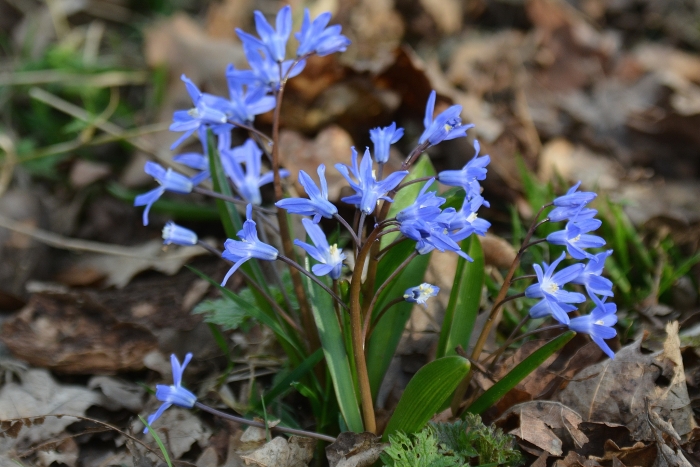Forbes’ Glory-Of-The-Snow
(Scilla forbesii)
Forbes’ Glory-Of-The-Snow (Scilla forbesii)
/
/

Matthew Vosper
CC BY 4.0
Image By:
Matthew Vosper
Recorded By:
Copyright:
CC BY 4.0
Copyright Notice:
Photo by: Matthew Vosper | License Type: CC BY 4.0 | License URL: http://creativecommons.org/licenses/by/4.0/ | Rights Holder: Matthew Vosper | Publisher: iNaturalist | Date Created: 2021-03-23T15:59:14-07:00 |











































Estimated Native Range
Summary
Scilla forbesii, commonly known as Forbes’ Glory-Of-The-Snow, is a deciduous perennial herb native to alpine meadows and rocky slopes in Turkey. It reaches a modest height of 0.5 feet and spreads 0.2-0.5 feet wide. This plant is celebrated for its early spring blooms, which present a delightful display of star-shaped flowers in shades of blue, pink, and white. The blooms are particularly showy, creating a carpet of color that can signal the end of winter.
Forbes’ Glory-Of-The-Snow is valued for its ability to naturalize and form impressive colonies, making it an excellent choice for rock gardens, woodland settings, and as a ground cover under deciduous trees. It is also a popular choice for container planting due to its compact size and vibrant flowers. This plant is relatively low-maintenance, requiring only medium amounts of water and thriving in well-drained soils. It prefers full sun to part shade, which allows for the most prolific blooming. After its flowering period, Scilla forbesii enters a period of dormancy, with its foliage dying back until the following spring. While it is generally pest-free, it can be susceptible to bulb rot if planted in overly wet or poorly drained soils.CC BY-SA 4.0
Forbes’ Glory-Of-The-Snow is valued for its ability to naturalize and form impressive colonies, making it an excellent choice for rock gardens, woodland settings, and as a ground cover under deciduous trees. It is also a popular choice for container planting due to its compact size and vibrant flowers. This plant is relatively low-maintenance, requiring only medium amounts of water and thriving in well-drained soils. It prefers full sun to part shade, which allows for the most prolific blooming. After its flowering period, Scilla forbesii enters a period of dormancy, with its foliage dying back until the following spring. While it is generally pest-free, it can be susceptible to bulb rot if planted in overly wet or poorly drained soils.CC BY-SA 4.0
Plant Description
- Plant Type: Herb
- Height: 0.3-0.8 feet
- Width: 0.2-0.5 feet
- Growth Rate: Moderate
- Flower Color: Blue, Pink, Purple
- Flowering Season: Spring
- Leaf Retention: Deciduous
Growth Requirements
- Sun: Full Sun, Part Shade
- Water: Medium
- Drainage: Medium
Common Uses
Bank Stabilization, Bee Garden, Border Plant, Butterfly Garden, Deer Resistant, Fragrant, Groundcover, Low Maintenance, Potted Plant, Rock Garden, Salt Tolerant, Showy Flowers, Street Planting
Natural Habitat
Native to alpine meadows and rocky slopes in Turkey
Other Names
Common Names: Glory-Of-The-Snow, Forbes’ Squill, Almindelig Snepryd, Forbes-Blaustern, Scille De Forbes, Vårstjärna
Scientific Names: , Chionodoxa forbesii, Scilla forbesii, Chionodoxa siehei, Scilla siehei, Scilla tmolusi, Chionodoxa tmolusi, Chionodoxa luciliae var. forbesii,
GBIF Accepted Name: Scilla forbesii (Baker) Speta